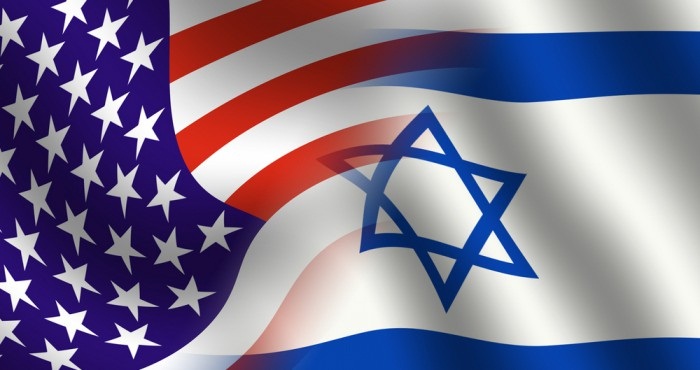Russia`s new foreign policy concept: key aspects

Foreign policy concept of the Russian Federation (see Концепция внешней политики Российской Федерации. Website of the Ministry of Foreign Affairs of Russia: www.mid.ru, 18 February 2013) has drawn the attention of the expert community. First and foremost, this is a document that enables the large power to calibrate its position and status in light of the global geopolitical changes of the modern world. One of the basic theses is "Russia`s obligation to build its foreign policy in volatile and rapidly changing world”. Key paragraphs of the document take into account this very condition. Two aspects of the foreign policy course have to be emphasized under aforementioned circumstances. Firstly, preference has to be given to prompt and multi-vector action model. Secondly, the West, namely the U.S. has to be acknowledged as the main rival. These two aspects prevail in the general spirit of the concept.
Authors suggest that the world has become "more volatile” and "unpredictable” after 2008 and that there are 5 reasons to that. The first one is global crisis. This factor has caused fundamental changes in the geopolitical environment. Secondly, the West is interfering into domestic affairs of others countries. The "Arab spring” is an example. Stemming from that factor international relations are dragged towards lack of control and chaos. The third factor is the shaky position of the UN that has to do with unilateral sanctions and forcible coercion undertaken outside of the UN Security Council framework. Dangers in the information domain and growing ideological international relations are the final factors.
Mentioned reasons encompass significant aspects of the global geopolitics. So main theme of the concept is that in the environment of "global turbulence” and growing inter-dependence of states establishment of individual "islands of stability and security” stands no chance (see Концепция внешней политики Российской Федерации. Website of the Ministry of Foreign Affairs: www.mid.ru, 18 February, 2013). Under the circumstances Russia assumes the "balancing role in the international relations”. Authors of the concept brand it as "Russia`s ultimate mission” and present foreign policy course of Moscow is aimed at achieving that objective.
Russia basically has issued an official document attesting to its aspirations of becoming a superpower. Playing a balancing role in the global mission certainly calls for extensive activity. Therefore, key objectives of the foreign policy course are adjusted accordingly. The first one is to aid the recovery of the global economy. To that end Russia is to assist the establishment of just and democratic, economic-trade and financial-monetary system. Secondly, Russia aims to confront interference into domestic affairs of others. It will uphold the respect for human rights and freedoms, while recognizing history, culture and national peculiarities of individual states. Third objective is to advocate the UN as a unique instrument, including prevention of interference into domestic affairs of others under various pretexts.
Concept also sheds light upon the methods to be utilized by Russia for achieving the objectives. It is first ever occasion that Moscow mentions the notion of "soft power” in the official document. It was first voiced by the President Putin during the announcement of his action plan in the run up to the presidential elections (see Владимир Путин.Россия и меняющийся мир. «Московские новости», 27 February, 2012).
Interestingly, foreign policy concept provides definition of the term. "Soft power” in foreign policy is described as methods and technologies alternative to conventional resources of the civil society, information-communication, and humanitarian and classic diplomacy (see Концепция внешней политики Российской Федерации. Website of the Ministry of Foreign Affairs: www.mid.ru, 18 February, 2013).
Thus, Moscow is hoping to shape a "positive image”. Russia hopes to explore vast potential of the information technologies and that of the Russian diaspora. Notably, special emphasis is given to Russians living abroad (Russian citizens in general). It explains the recently announced idea of President Putin on granting Russian citizenship to those who reside in the post soviet space and deem themselves successors of the USSR. Apparently Moscow aims to make use of such groups residing in the Russia`s immediate neighborhood.
"Regional priorities” paragraph bears special importance in this context. Integration on the post soviet space has been identified as an imperative priority for Russia`s foreign policy. Great deal of attention is attached to Commonwealth of Independent States, Customs Union, Eurasian Economic Community, Collective Security Treaty Organization and the Union state of Russia and Belarus. Moscow focuses on engaging Ukraine into integration processes. Document reiterates that Russia will continue to pursue active role in seeking political-diplomatic resolution of the conflicts in the CIS, namely Armenia-Azerbaijan, Nagorno Karabakh conflict, jointly with other co-chairs of the Minsk Group of the OSCE, and in line with the principles stipulated in the statements by the Presidents of Russia, France and the U.S. issued in the years 2009-2011.
European Union is regarded as a second priority. Significance is attached to establishing visa-free travel regime. Germany, France, Italy and the Netherlands are considered key partners, given successful cooperation in the field of natural gas sales. They are followed by the OSCE, NATO, Northern European countries, Baltic states and the Balkans. It is only then that the U.S. becomes a topic in the document. Moscow eyes the U.S. as a main rival in the geopolitics and speaks of imperativeness of upholding the norms of the international law and forwards condition of refraining from interference into domestic affairs of other countries. As far as China and India are concerned, those states are described as friendly, underscoring the need to bolster relations. It is not incidental that Asia-Pacific region is declared a "most dynamically developing geopolitical space” and dubbed as the future center of global economy and politics.
Apparently, Russia`s foreign policy concept was produced taking into account geopolitical evolution trends and global conflicting aspects. Moscow`s world stage performance contributing to peacemaking and integration is acknowledged as a must, but it is the time that will reveal the reality.
Newtimes.az















































